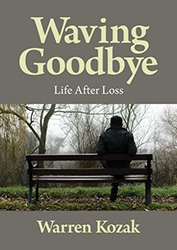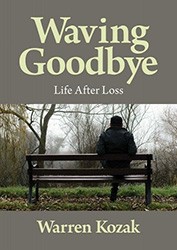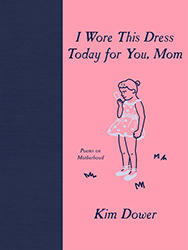
Photo by Gadiel Lazcano on Unsplash
What is it about the alluring widower? What makes a man more appealing if his wife has died? Is he more vulnerable or perhaps more available? He doesn’t get any better looking, smarter, or richer (unless his late wife was an heiress). But Hollywood has leaned into this scenario from the start: The sad widower who everyone wants to help. It’s also completely one-sided. I can’t think of many films where the widow allures.
I’ve wondered about this trend since my wife passed away six years ago. I’ve come to the conclusion that Hollywood’s distorted version of the widower makes complete box office sense. No one would pay money to see the reality. What normal person would want to spend two hours watching Brad Pitt or Robert Redford make coffee in the morning, sit down by himself, stare at his cup for ten minutes in silence and then burst into tears? (Well, maybe fans of Swedish director Ingmar Bergman’s dark films.) Great entertainment and great dialogue don’t often include sleepless nights and hours of loneliness.
I have found most films on the topic of widowers fairly awful, even embarrassing. In 1963, we had the amazingly facile, The Courtship of Eddie’s Father, which actually went on to become a network comedy series for three seasons in the 1970s. Yes, you read that correctly – comedy. The 1963 film starred Glen Ford as the recent widower with a young son played by Ron Howard. No sooner does Ford return to work after the funeral than everyone – including his son– tries to help find him a new wife. It feels like Ford lost his housekeeper, not someone he was remotely attached to. He never loses his composure, doesn’t appear to be sad, and his son is the quintessential 1950s American kid, more interested in pretty much everything else except the fact that he’s lost his mother.
More recent films like Sleepless in Seattle are slightly better. There is, in particular, one scene that felt honest to me in that film when Tom Hanks gets exasperated with his young son, and the boy actually breaks down over the loss. Hanks gets closer on his second try, twenty years later, in A Man Called Otto when he plays a sad, angry old man who wants nothing more than to kill himself and join his wife in death.
Hollywood has leaned into this scenario from the start: The sad widower who everyone wants to help.
In Love Actually we saw Liam Nissan as the widower who looks like he is truly in great pain and actually loved the wife he lost, until he moves on with the promise of supermodel Claudia Schiffer.
A friend suggested I watch a series on Netflix called Afterlife by the British comedian Ricky Gervais. It’s about a British reporter for a local newspaper in England who has lost his wife. The deceased wife appears throughout the series in video recordings that he watches most nights.
It was touching and so accurate that I felt sorry for Gervais because I assumed that his keen portrayal of the topic must have come from actual experience and understanding. I was greatly relieved, and frankly surprised, to find out he is not, in real life, a widower. I am curious, though, how he got it so right.
But the all-time Blech Award goes to the insipid, cliché-filled, and horribly acted 1970 film Love Story with Ali McGraw and Ryan O’Neal. The story, which was extremely popular, uses the heroine’s cancer as a vehicle for tear-jerk sympathy. Here it is again – the vulnerable, appealing widower.
I rewatched it recently to make sure my memory was correct. Now, fifty years later, it’s even worse than I remembered.
It worked though, at least financially. Love Story was one of the first films to make one hundred million dollars in its initial run. That was a lot of money, especially in 1970. The book by Erich Segal was on the best seller list for forty-one weeks.
In all honesty, I found absolutely nothing romantic in my wife’s cancer, the long days and nights in the hospital, her suffering, or her death. Zilch.
However, there is one brief moment where the film industry caught the truth of what it means to lose your spouse and, strangely, it seems almost by accident. Perhaps that’s because widowhood isn’t the main point of To Kill a Mockingbird. It is, of course, about race in the American South in the 1930s.
In one standout scene, Gregory Peck, as widower Atticus Finch, is sitting on the porch by himself one summer night. His two young children are in their bedrooms about to fall asleep, and Atticus overhears a conversation between them concerning their dead mother.
Scout asks her brother if he remembers her because her memory is fading. What makes this scene so incredibly powerful is the fact that Gregory Peck says absolutely nothing. He has no lines. While we also eavesdrop on the children’s conversation, the camera just focuses on Atticus as he sits there, taking it in. Alone. It’s all in his face. This scene is thoughtful, respectful, and as powerful as any I have ever seen portraying widowhood.
So there is good news here, it is, in fact, possible to honestly portray aspects of the complexity of widowhood and grief and actually have a great film at the same time.

Adapted from Waving Goodbye: Life After Loss by Warren Kozak



